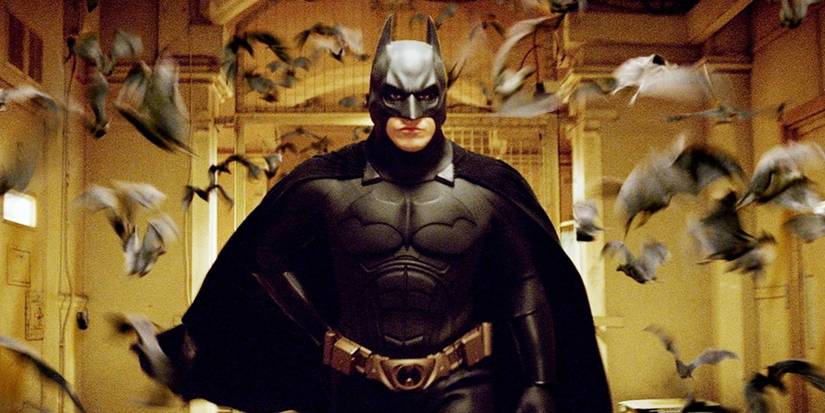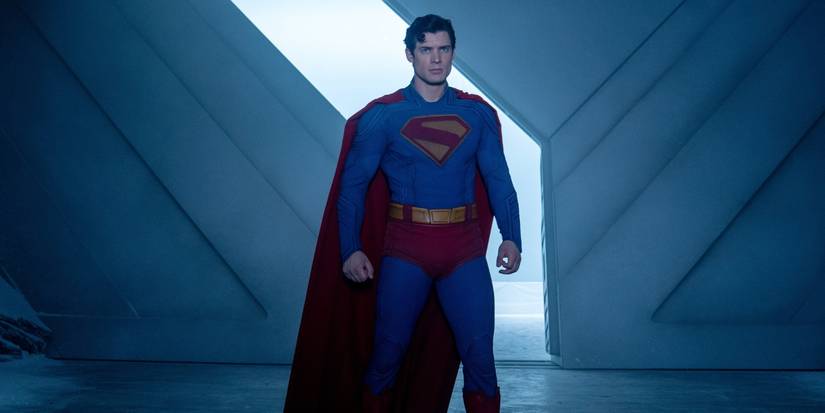2027 is set to be a big year for DC fans. In July, the follow-up to Superman (though James Gunn says it isn’t a sequel), titled Man of Tomorrow, will open in theaters. It will then be followed by Matt Reeves’ The Batman: Part II in October, the long-awaited sequel to 2022’s The Batman. Even though these two characters will be in separate universes (sorry, merger fans), it is a big deal, as it will mark the first time a Superman and Batman movie has opened in the same year.
While one could technically argue that 2014’s The Lego Movie or 2016’s Batman v. Superman: Dawn of Justice should be included, those films feature Superman and Batman together. Yet the idea of DC’s two biggest heroes getting their own solo films in the same year is monumental. Both will be given the spotlight in separate projects, as DC and Warner Bros. can plan a whole year of promotional material around their two biggest superheroes and long-running film franchises.
Rumors have circulated that DC wants 2027 to also feature a Wonder Woman movie, so it could be the year of the DC Trinity. For now, it is just Superman and Batman. However, this isn’t the first time Warner Bros. has attempted to release a Superman and Batman movie in the same year. In fact, the two film properties have a unique relationship. The Batman: Part II has been delayed so much that it is now coming out alongside the follow-up to the movie it was originally intended to accompany.
‘The Dark Knight Rises’ and ‘Man of Steel’ Were Supposed To Release in the Same Year
The idea of a Superman and Batman movie coming out in the same year actually dates back to 2012. In 2010, during development on the script for The Dark Knight Rises, David S. Goyer and Christopher Nolan started sharing ideas for a Superman reboot (because even those in charge of billion-dollar franchises procrastinate). Their take on a first-contact storyline caught WB’s attention, which was struggling to figure out how to reboot Superman again following the disappointing box office performance of Superman Returns.
Warner Bros. hired David S. Goyer to write the Superman reboot, Man of Steel, and Christopher Nolan was to serve as executive producer. They wanted to give Superman the Batman Begins style treatment, done by the same creative team. WB also had a plan to tie the two projects together, even though they would be set in different universes. Warner Bros. slated The Dark Knight Rises for July 20, 2012. Then they set Man of Steel for a December 2012 release date.
The plan was to have a Batman and Superman movie in the same year. It also gave them two Christopher Nolan-related projects, one for the summer movie season and another for the holidays. It was also symbolically the end of one franchise with The Dark Knight Rises, and the beginning of a new franchise (soon to be universe) with Man of Steel. So what happened? Why did Warner Bros. delay Man of Steel?
Well, it was likely The Hobbit. Warner Bros. and New Line Cinema had dated The Hobbit: The Unexpected Journey for December 14, 2012, all the way back in April 2010. With how big The Lord of the Rings trilogy was, Warner Bros. seemingly didn’t want to take away the attention from their long-awaited Hobbit movie. In July 2011, Warner Bros. officially announced that Man of Steel would be delayed from its December 2012 release date to June 14, 2013. By this point, Man of Steel was fully cast, and filming was about to begin in August 2011. Man of Steel finished filming in February 2012, and due to the delay, it received over a year of post-production time.
This delay, though, changed the approach to Man of Steel. The movie’s first teaser trailer was released alongside The Dark Knight Rises, 11 months ahead of Man of Steel‘s release date. This now meant that Nolan’s The Dark Knight Rises truly stood out as the ending of a DC legacy, which would be followed up the next year with the start of something new.
Superman and Batman Tend To Trade off Years
The Superman and Batman film franchises are closely linked. The Superman film series spanned four films from 1978 to 1987. Two years after the release of Superman IV: The Quest for Peace, which seemed to have killed the superhero genre, Tim Burton’s 1989 Batman gave the genre new life and gave Warner Bros. its new big franchise. Like Superman, the original Batman series would also run for four films, from 1989 to 1997, before it fizzled out with the release of Batman & Robin.
Yet following Batman Forever, when Batman had been reinvented, WB pushed forward on a new Superman movie. Titled Superman Lives and set to be directed by Batman‘s Tim Burton and starring Nicolas Cage, WB slated the film for a summer 1998 release date. This was meant to be released a year after Batman & Robin, with WB likely hoping that a fifth Batman film would open in 1999, giving them a new superhero movie every year, and the two DC heavyweights would trade off. Yet Batman & Robin bombed critically and commercially, not only causing WB to scrap plans for a fifth film but also pulling the plug on Superman Lives.
Then, in 2005, Warner Bros. released Batman Begins, followed by Superman Returns in 2006. The Dark Knight opened in 2008 and the plan originally was for the Superman Returns sequel, titled Superman: Man of Steel, to open in 2009, once again having Batman and Superman films follow one another with the gap years between the movies likely being saved for other DC heroes (2007 was initially planned for either Joss Whedon’s Wonder Woman or David S. Goyer’s Flash). However, after Superman Returns disappointed, the plans were scrapped; yet, the tradition of one after another continued with 2012’s The Dark Knight Rises and 2013’s Man of Steel.
The Batman: Part II was originally slated for October 2025, meaning it would have opened the same year as the release of Superman. It was then delayed to October 2026, placing its release a year after the Superman film and continuing the alternating-year pattern between the Caped Crusader and the Man of Steel. Yet The Batman: Part II was delayed again to October 2027, once again premiering alongside a Superman movie. The Batman: Part II has been postponed so many times that it has almost been released in the same year as a Superman movie, then pushed back to the year after a Superman movie, only to be released once again in the same year as a Superman movie.
Is 2027 Shaping up To Be the Biggest Year for Superhero Movies in Decades?
With Man of Tomorrow and The Batman: Part II, DC has two of its biggest heroes, arguably two of the biggest superheroes of all time, front and center. 2027 also sees the release of Spider-Man: Beyond the Spider-Verse, which, like The Batman: Part II, is a long-delayed sequel. 2027 will conclude with Avengers: Secret Wars, which will unite various corners of the Marvel multiverse, including the X-Men, Fantastic Four, and the Avengers.
When it comes to superheroes, 2027 will see the four biggest names in the genre — Superman, Batman, Spider-Man, and the Avengers — all open new entries. There has been a conversation around superhero fatigue and whether audiences are growing tired of the genre. Where once it felt like any superhero, no matter how obscure, could crack $700 million worldwide, that is no longer a guarantee in 2025. Even The Fantastic Four: First Steps‘ $500 million worldwide gross is seen as a slight disappointment, despite being the biggest Fantastic Four film of all time. After titles like Thunderbolts*, Blue Beetle, The Flash, and The Marvels all underperformed, a common sentiment online emerged: “the only heroes that are guaranteed to be hits are Batman and Spider-Man,” with Superman and the Avengers often added to the list.
Well, in 2027, that will be put to the test. Will the combined might of Man of Tomorrow, The Batman: Part II, Spider-Man: Beyond the Spider-Verse, and Avengers: Secret Wars rebound the public’s perception of the superhero genre? Will it reinforce the idea that only big-name heroes can draw out audiences? Or will one or two of these titles underperform to expectations and cause more panic? A lot could happen in two years, but 2027 will be a superhero year for the books.



